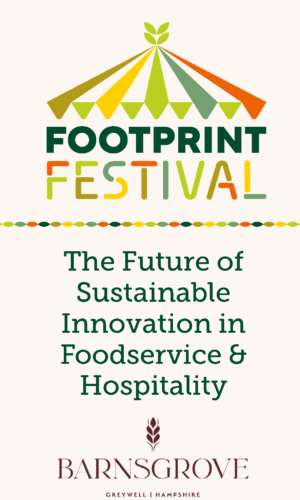His campaign rhetoric suggests President Trump will be bad news for the planet, but is there cause for optimism?
What will a Donald Trump administration mean for food and the environment? It’s a sentence the Print never anticipated having to write, but then 2016 has been the year the political rulebook wasn’t just rewritten but trampled on, set alight and burned in an oil drum.
A pithy analysis based on his campaign rhetoric is that President Trump will be good for American farmers and bad for the planet.
The reality will surely be more nuanced – if indeed there is still room for nuance in political debate – but Trump’s stated positions on global trade and fossil fuels leave little room for manoeuvre for fear of betraying his voters, many of whom live in rural areas where farming and mining are part of the fabric of local society.
Trump appears to view protectionist trade policies as a means of ensuring a prosperous future for American workers. Few sectors are as protected as farming, or as averse to market liberalisation unless it’s on their own terms, and so “Trumponomics” is sure to curry plenty of favour with the corn farmers of Kansas and the cattle ranchers of Texas.
Less clear is how farms – and indeed restaurants – will fare without access to cheap migrant labour if and when the president-elect builds his infamous wall along the Mexican border.
Trump has already announced his intention to withdraw from the Trans-Pacific Partnership on his first day in office, while the US-EU trade deal TTIP looks dead in the water too. The vote for Brexit means the completion of TTIP has become somewhat incidental to the UK. However, for domestic food businesses hoping to gain a foothold in the US market or take advantage of cheaper imports there seems little prospect of a decisive breakthrough on bilateral trade any time soon, despite positive spin from Number 10 that the UK is no longer at the back of the queue for a US free trade deal.
There are good reasons to view free trade deals with a critical eye, not least when, like TTIP, they risk lowering food and environmental standards. Yet it seems unlikely Trump’s opposition to free trade is based on concerns for public health or animal welfare. On the contrary, Trump’s hostility towards the US Environmental Protection Agency is well known – he threatened to scrap it during the election campaign – and it would be little surprise to see a bonfire of regulations paving the way for more widespread industrial farming methods and a lowering of standards on key environmental indicators such as air, soil and water quality. The Food and Drug Administration, responsible for food safety and public health, is also in the line of fire having previously been referred to by Trump as “the FDA food police”.
On climate change, Trump is even more bombastic. He is on record as claiming global warming is a hoax created by China to make US industry less competitive, and has already threatened to pull the US out of the Paris climate accord. And while he appeared to soften his position in a recent interview with the New York Times in which he said he had an “open mind” on the link between human activity and climate change, he also suggested he would give as much credence to the 7% of (mostly industry funded) scientists who deny climate change as the 93% who confirm its existence.
A Trump presidency is also likely to encourage a renewed dash for gas, while approvals for new oil exploration and efforts to revive the coal industry are set to be high on the priority list.
If this all sounds unimaginably bleak then consider two points that should give cause for optimism. First, the international consensus on tackling climate change is stronger than it’s ever been with well over 100 countries having ratified the Paris Agreement (including the UK) and businesses across the globe committing to long-term action to reduce emissions.
And second, on the day Trump was elected president, no fewer than four American cities voted to introduce a soda tax on high-sugar drinks, demonstrating how US food politics is shaped at local as well as regional and national levels.
The US will not completely divorce from a progressive food and environmental agenda just because Trump is in the White House. But it’s hard to deny that a sustainable future looks a lot further away than it did a month ago.









